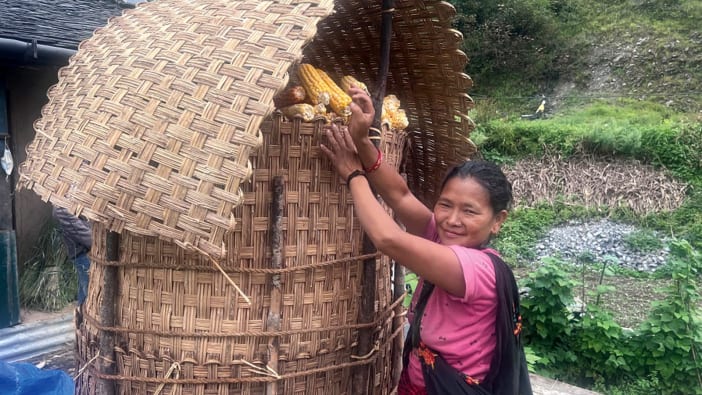(From the Footsteps archive…)
By Mike Carter
This article first appeared in Footsteps 10 on Small Livestock. At the time of publication, Mike Carter worked for T-CORD, Bishop Burton Agricultural College. He has now retired.
You have probably seen an ‘intensive’ poultry project: day-old chicks of a ‘grade’ or ‘hybrid’ type have been bought; an expensive poultry house has been built for them, perhaps with a corrugated tin roof; special feed is brought ready-mixed from mills.
Sometimes such poultry projects work well, but it is a sad fact that in many countries they can often be seen empty. The chickens are gone and money has been lost. The poultry may have belonged to a development project, to a village cooperative, to a church or school group or to an individual farmer. Whoever they belonged to, hopes have been disappointed.
Why do such projects so often fail? Intensive poultry keeping is not the easy income-generating activity many people believe it to be. Advice may be given by people who know little about poultry keeping. Sometimes people do not realise how much investment is needed. Things can go wrong. Amongst the most common problems are:
Poor management The management in intensive poultry keeping must be very good. There must be strict hygiene control: eg vaccination against disease, foot dips at the door, disinfecting the house for new chickens. There must be enough space for each bird and sufficient waterers, feeders, nest boxes and perches. If day-old chicks are bought, they must be kept warm and fed a correct diet.
Poor record-keeping Production and financial records are needed. Chickens not producing well (eggs or meat) must be culled (sold or killed) quickly.
Wrong type of chicken The chickens may have originally come from another country. They may only be able to produce well in a very different type of housing, or under a different management system. Under village conditions, local chickens are often the most reliable and profitable.
Project started too large Perhaps 200 layer chicks were bought before the skills and knowledge in intensive poultry keeping were gained, or before it was certain the chicks would do well and the produce sell well.
Inaccurate budgeting The farmer or project members need to work out accurately, before beginning, exactly how much food growing chickens eat. Other costs – medicines, vaccines, equipment – must be added. With layers it will be six months before the first eggs are laid; in the meantime there will be no income.
Feed supply problems Perhaps feed supply or quality failed; there was no more cash to buy feed; there was no transport. Laying chickens will stop producing if feed quality changes or if they have to go without feed or water for just 24 hours. Chickens eat similar food to people, so if food is short, intensive poultry may be in competition with people. This inevitably will lead to supply problems.









